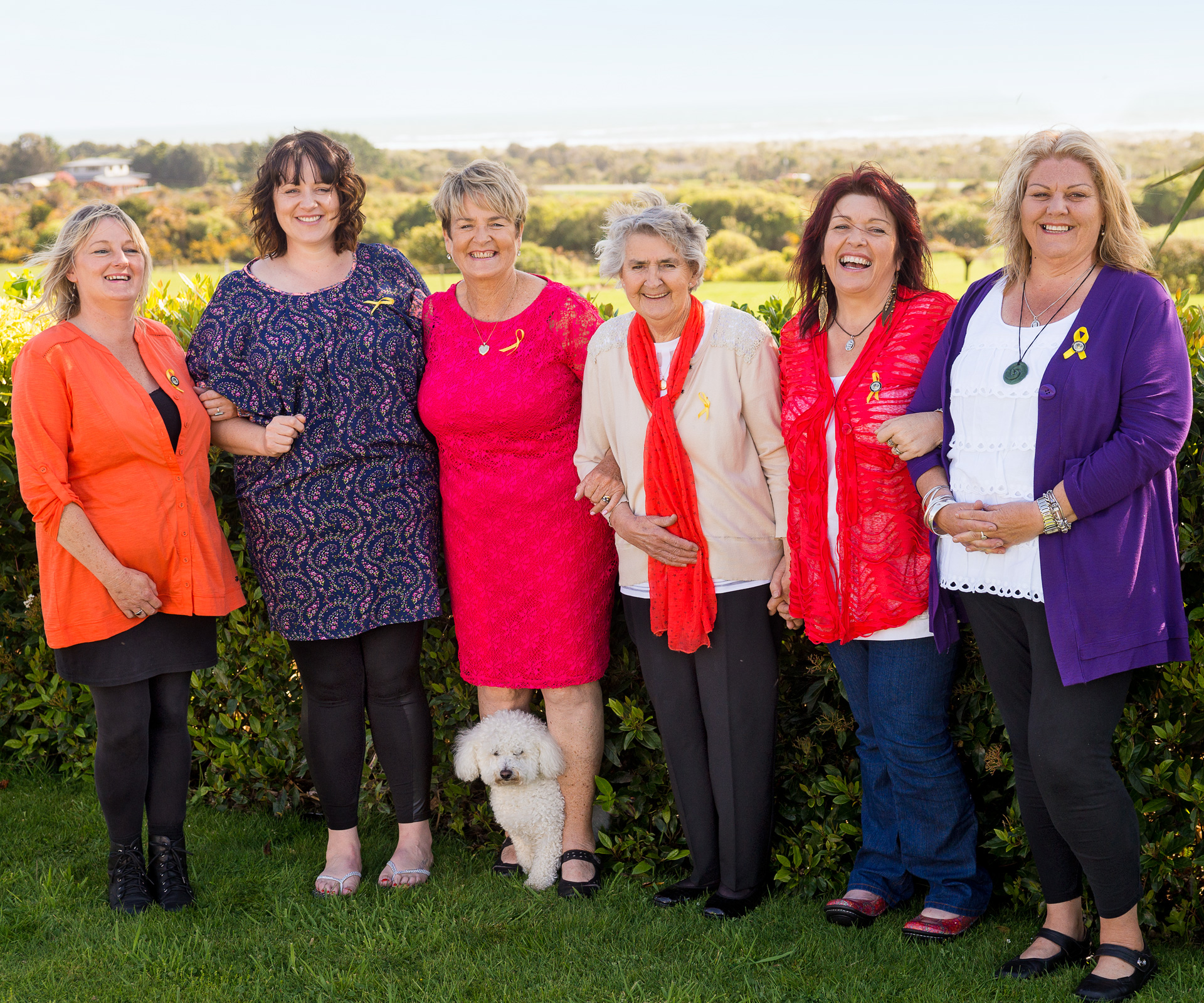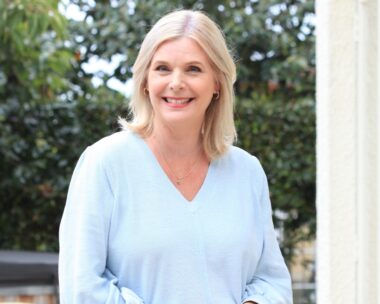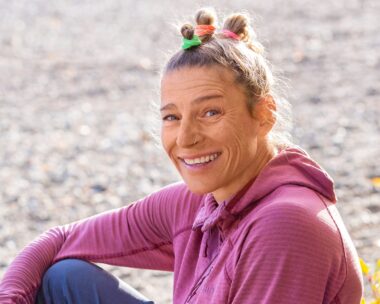When Anna Osborne lies in bed at night, the image of her husband lying in a cold, dark, flooded mine haunts her. Milton was killed at Pike River Mine five years ago, and with no-one held to account and no body to bury, the pain is still strong.
Anna is one of six grieving relatives who have taken part in the TV One documentary The Women of Pike River. It marks five years since the day that 29 men went to work deep underground at the west coast coal mine and never came home.
For Anna and Nan Dixon, Brenda Rackley, Sonya Rockhouse, and Kath and Olivia Monk, it’s been a long fight for the return of their men’s bodies. Sharing their unbearable pain with Woman’s Day, they talk about the friendships they have formed through the heartache of losing their husbands, sons and brothers, and the anger they still feel every bit as sharply as they did half a decade ago.
Greymouth teacher’s aide Anna, 49, says the five years since Milt was killed have beena long, hard road. “We’ve had no justice and no accountability,” she tells, “and we’re still waiting for our men to return home.
I won’t accept that the company can’t go into the mine. I won’t stop fighting to bring Milt home.” Her husband, 54, hated being underground and was two weeks away from a new job. Speaking through tears, Anna adds, “It’s not a place he enjoyed being in – he was not a miner, he was a contractor. It’s a really cold, dark, horrible place that’s flooded. My husband couldn’t swim and hated the water, so it makes me really feel sick to think he’s lying in the south end of the mine in a pool of water. When I go to bed at night, that’s the image I have. I don’t want that image to stay with me.”
Fatal mistakes
Anna wants to bury Milt in a place of her choosing, so she and their children, Robin, 20, and Alisha, 18, can grieve properly. A Royal Commission into the disaster found Pike River Coal did not have adequate health and safety systems, nor sufficient ventilation and gas drainage systems. It was also revealed that the company ignored warnings from its workers that methane gas had reached dangerous levels in the mine, mere weeks before the deadly explosion.
Having further noted that the Department of Labour had failed to ensure Pike River Coal was meeting its legal responsibilities under health and safety laws, the commission made 16 recommendations to improve New Zealand’s health and safety record and emergency responses. Pike River Coal was convicted of nine health and safety breaches, but 12 charges against mine boss Peter Whittall were dropped.
The families received a settlement of $3.41 million, which was covered by the company’s insurance, and the mine’s new owner Solid Energy announced a year ago that the mine would never be re-entered.
For Anna, who says Milt taught her what true love was, the thought is unbearable.
“It’s really hard living each day without your best friend – that’s what I struggle with. For the kids and I, he was our everything. It has destroyed our souls.” She and Sonya, whose son Ben, 21, was killed in the mine, have launched a judicial review into the decision to drop the charges against Peter Whittall.
She explains, “I don’t hold him solely responsible – there was a whole team there that was more concerned about production over safety – but I want them to know we’re not going away. I can’t give up on Milt. I know he’d fight for me. There’s so much anger. People say you’ve got to forgive, but it’s really hard because nobody has said sorry.”

While the group are all dealing with their grief differently, they are united in their determination to bring their boys home.
The only true blessing from Pike is the friendships she has formed with the other families.
“The greatest bond I have formed is with Sonya,” says Anna. “I just feel blessed to have her. We can totally relate to each other. We can cry, we can joke, we can laugh … We can share it.”
Christchurch resident Sonya, 56, also a teacher’s aide, can’t accept that no-one has been held accountable for the disaster. She says, “A lot of Pike families are not over it exactly, but they’ve run out of energy and have had a gutful. But Anna and I will never get past it.”
Sonya’s son Ben was a sensitive boy who was studying to be a geologist. Her other son, Daniel, then 25, survived the blast and saved the life of another man by carrying him out of the mine. Sonya says Daniel was told to shut up when, before the disaster, his gas sensor detected dangerous levels of methane. He’d also discovered an underground safety room that didn’t contain fresh air or working phones.
“Not one person has been held responsible for the murders of 29 men,” fumes Sonya. “There’s more than enough evidence. It’s incredibly frustrating. John Key said he would do whatever it took to get those men out, that money was no object, and we were naïve enough to hang on his every word.”
She says families had been shown footage from within the mine of a fully intact clothed body and images of an open self-rescuer box. “We’ve heard from experts who have said the risks of going in can be managed safely. But there is no will to go in because there is evidence down there that will point the finger.
I will never come to terms with the terrible way these men were killed and the terrible way we were treated afterwards. I wish I could move on, but I can’t. It keeps me awake at night.”

Brenda believes her partner John’s body is lying near the entrance of the mine.
Broken trust
Dunedin woman Brenda, 49, believes her partner John Hale, 45, was not far into the mine and the recovery of his body is possible. “The last footage I saw of him was going into the mine about six minutes before the explosion, so I was getting my hopes up that if they recovered the remains, they’d get to him first.”
She is angry about the false hope given to the families by Pike River Coal. “Peter Whittall told me at a meeting in the days after the explosion that John would have been nowhere near it,” Brenda says. “I worried about John underground, but he told me they had gas sensors. He trusted those sensors and I was reassured by that. To find out later they were either not working or not even in place – that was devastating for me.”
Brenda was with John for three years, but they’d been neighbours and friends for nine years. “It was a cruisy, happy relationship. I felt I’d found the one and we were happy,” she recalls. “We had a lot going on together. We loved singing, fishing and cooking up nice food. We liked doing creative stuff together. He built the barbecue and I did the artwork around it.”
A chief inspector of mines for many years, Harry Bell had warned Pike River Coal that employees were working in unsafe conditions. Tragically, his own sister, Nan, 83, is still waiting for her son Allan, 59, to come home from the mine.
Greymouth-based Nan recalls that Allan would stay with her while he was working at Pike River and travel back to his partner in Nelson on his days off. “It was lovely having him home after all those years,” she says. “He would come home feeling sick from the gas levels and I kept telling him to say something to the boss. He said he’d tried, but was told, ‘Shut your face and get the coal out!’”
Nan reveals that baking is the only thing that’s helped her through the grief and anger of the last five years. “I used to bake for Allan. Now whenever I am feeling down, I bake. But I haven’t been able to bake his favourite, peanut patties, since.”
Olivia, 33, will always miss her beloved little brother Michael, who was just 23 when he died, and says the documentary is just a small insight into what she and her family have been through. “Michael wasn’t just one of 29 men who were killed – he was my brother,” she says.

A fourth explosion during the 2010 disaster. On the fifth anniversary, November 19, families will stand at the portal and call out their loved ones’ names.
She feels very angry towards Pike River Coal and its senior management, explaining, “They fed us lies. They gave us false hope every step of the way, knowing that health and safety standards were well below what they should have been.
“The Royal Commission was good, but the recommendations have not been put in place. Nothing changes. It has made me a very cynical person. I hate that.” Olivia’s mum Kath, 63, recalls how she nicknamed Michael her “Little Hun”. The Greymouth resident tells, “He came home to stay with me for a year before he died. He was saving money to build a house on a section he’d bought. I’m forever grateful for that time.”
When she thinks about Michael, the enduring image she has is him coming out of his room every morning. “I can still see him standing in the doorway with his undies on,” she laughs. It’s a lovely memory for the devastated mum-of-three, whose husband Bernie was the public face of the disaster as the spokesman for the families. Kath has found great joy in her first grandchild, who was born last year, and has learned to live with the fact her youngest son will remain in the mine forever.
“Last year was the first year we were allowed up to the mine portal,” says Kath. “We stood at the portal and called out our boys’ names. It started pouring down and thunder struck just as we got up there. I thought, ‘Stuff it!’ and walked into the portal. That was special for me becauseI was where Michael is.”
This year, on November 19, at 3.45pm, exactly five years since the explosion at Pike River, the families will gather at the mine site. Like last year, they will each call out their loved ones’ name at the portal and find some comfort – not from their grief, but in each other.




